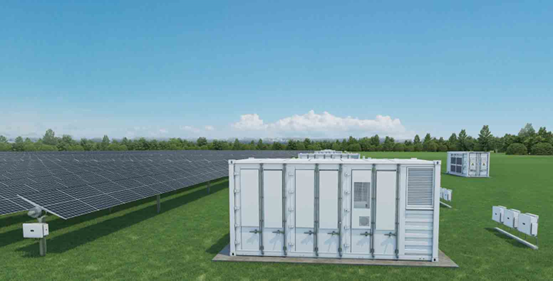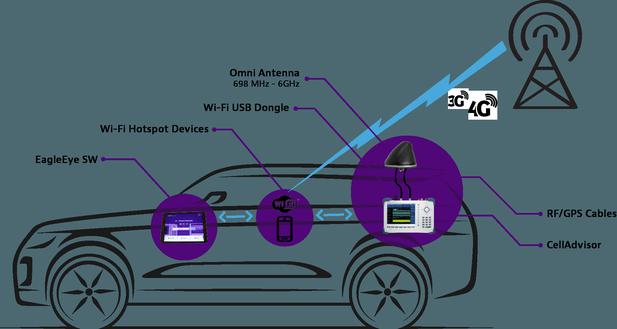Strategies for Large Enterprises with Commercial Industrial Smart PV Solutions
In the dynamic landscape of modern business, large enterprises are increasingly turning to sustainable practices, and one of the key avenues is the adoption of Commercial Industrial Smart PV Solutions. These advanced solar energy systems offer not only environmental benefits but also the potential for substantial cost savings. In this article, we will explore how large enterprises can strategically reduce costs while harnessing the power of Commercial Industrial Smart PV Solutions.
Cost Reduction Strategies with Commercial Industrial Smart PV Solutions
Efficient Energy Generation and Consumption Monitoring
A cornerstone of Commercial Industrial Smart PV Solutions is the ability to monitor energy generation and consumption in real time. By leveraging advanced analytics and IoT technology, enterprises can gain granular insights into their energy usage patterns. This visibility allows for precise adjustments in energy consumption during peak and off-peak hours, enabling businesses to optimize their energy usage. By aligning energy consumption with solar generation peaks, enterprises can significantly reduce reliance on grid power during expensive peak-demand periods, resulting in immediate cost savings.
Demand-Side Management and Peak Shaving
Commercial Industrial Smart PV Solutions empower enterprises with the capability to engage in demand-side management strategies. By strategically shifting energy-intensive processes to coincide with periods of abundant solar generation, businesses can engage in peak shaving. This involves reducing electricity consumption from the grid during peak hours, when energy prices are typically at their highest. As a result, large enterprises can capitalize on their solar-generated energy during peak periods, minimizing reliance on costlier grid power and realizing substantial cost reductions.

Integration with Energy Storage Systems
The integration of energy storage systems with Commercial Industrial Smart PV Solutions introduces a new dimension of cost optimization. Energy storage allows enterprises to store excess solar energy generated during sunny periods for use during cloudy days or after sunset. This not only enhances energy resilience but also reduces the need for grid power during non-generating hours. By intelligently managing the flow of energy between solar panels and storage units, large enterprises can further reduce their dependency on grid power, thereby lowering electricity costs and ensuring a consistent and reliable power supply.
Regulatory Incentives and Tax Credits
Governments around the world are increasingly recognizing the importance of transitioning to renewable energy sources. Many jurisdictions offer a range of incentives, grants, and tax credits for businesses that invest in Commercial Industrial Smart PV Solutions. Large enterprises can take advantage of these incentives to offset the initial capital costs associated with installing solar systems. By thoroughly researching and understanding the available incentives, businesses can significantly reduce their upfront expenditures, making the adoption of smart PV solutions even more financially attractive.
Scalability and Modular Design
The scalability and modular design of Commercial Industrial Smart PV Solutions provide enterprises with flexibility in adapting to changing energy needs. Businesses can start with a smaller installation and gradually expand the capacity based on their evolving energy demands. This phased approach allows for a more manageable financial investment, spreading the costs over time. Moreover, modular systems enable enterprises to replace or upgrade individual components without overhauling the entire system, minimizing both downtime and long-term costs.
Predictive Maintenance and System Optimization
The implementation of predictive maintenance through Commercial Industrial Smart PV Solutions can be a game-changer for large enterprises. HUAWEI offers cutting-edge C&I Smart PV & ESS Solution. With the ability to remotely scan and identify faults within two minutes through a single click, onsite inspections become unnecessary. By continuously monitoring the performance of solar panels and associated components, businesses can predict potential issues before they escalate. Proactive maintenance not only minimizes downtime but also extends the lifespan of the PV system, reducing the need for costly emergency repairs or replacements. Additionally, the ability to optimize system performance based on historical data ensures that the solar installation operates at peak efficiency, maximizing the return on investment over time.

Conclusion
The adoption of Commercial Industrial Smart PV Solutions represents a strategic move for large enterprises aiming to reduce costs while embracing sustainable practices. By leveraging real-time monitoring, predictive maintenance, demand-side management, energy storage integration, regulatory incentives, scalability, and employee engagement, businesses can unlock the full potential of smart PV solutions. In doing so, they not only contribute to a greener future but also position themselves as financially savvy and environmentally responsible leaders in their respective industries.
Latest: The Versatile Uses of Wireless iPhone Chargers
Next: Exploring the Need for Solar Energy Storage Batteries in Home Installations







